|
|
|
Книги издательства «Laurence King Publishing»
|
Bars and restaurants need to be assertive. Customers tend not to visit them to satisfy basic appetites for food or drink but for the social opportunities. Their interiors need to occupy the imagination of their customers and to whet the appetite for a return visit. The design that gets the formula right will do as much to prolong the life of the business as the products on offer. As this book demonstrates, the conventions and mechanics of eating and drinking influence how bars and restaurants are conceived in different regions of the world. Whatever the final result users are in sustained, intimate contact with the elements of the space they inhabit and detailing must be refined enough, and visually rich enough, to withstand prolonged scrutiny. This book includes a wide range of international projects and for each one there is a descriptive text, colour photographs, floor plans, sections and construction and decorative details. A bonus CD-ROM contains all the drawings as printed in the book, in both EPS and DWG (generic CAD) formats. |
|
Tumble down the rabbit hole and find yourself in an inky black-and-white wonderland. This interactive activity book takes you on a ramble through a secret garden created in beautifully detailed pen-and-ink illustrations all waiting to be brought to life through colouring, but each also sheltering all kinds of tiny creatures just waiting to be found. And there are also bits of the garden that still need to be completed by you. Appealing to all ages, the intricately-realized world of the Secret Garden is both beautiful and inspirational. |
|
Japanese style has long been admired for its grace and artistry. Add to that a sense of fun, and you have the Stylish Dress Book. Complete with stunning full-color photos, this book gives you instructions and pull-out patterns for 26 relaxed and comfortable yet elegant dresses and tops — pretty, timeless pieces that can be worn year after year, by women of all ages and sizes. The detailed diagrams and easy-to-follow instructions take you step-by-step from layout to finished garment. The no-rules looks pictured in this book are perfect for today's carefree fashion sensibility and will inspire you to have fun with fabric and style. |
|
Combining environmental concerns about travelling with a growing enthusiasm for cycling, this product intends to encourage people to take up travelling in this manner in short or long rides, through urban, suburban or rural areas, alongside roads, coasts and mountain paths and record these colourful journeys. On the one hand, the journal is an ode to that long-time travelling companion, his bike. On the other hand, however, it is also, and above all, supposed to encourage others to do the same, cycle and draw (possibly not at the same time). His drawings will act as prompters and punctuation marks, dividing sections (on travels through cities, the countryside, coasts, mountains, etc.), mapping out ideas and guiding imaginative riders through new landscapes, both real and imaginary. With 20 illustrations, blank pages to write on and 16 envelopes to store mementoes of your journeys. The journal will be designed by Roger Fawcett-Tang of Struktur Design. His previous books include New Book Design and Experimental Formats. |
|
Semiotics is the theory of signs, and reading signs is a part of everyday life: from road signs that point to a destination, to smoke that warns of fire, to the symbols buried within art and literature. Semiotic theory can, however, appear mysterious and impenetrable. This introductory book decodes that mystery using visual examples instead of abstract theory. This new edition features an expanded introduction that carefully and clearly presents the world of semiotics, before leading into the book's 76 sections of key semiotic concepts. Each short section begins with a single image or sign, accompanied by a question inviting us to interpret what we are seeing. Turning the page, we can compare our response with the theory behind the sign, and in this way, actively engage in creative thinking. A fascinating read, this book provides practical examples of how meaning is made in contemporary culture. |

|
This is Farrell's story, embracing four decades of observation of our built environment. His anecdotes, recollections and musings take a nomadic journey through time and space — a walk down 1950s Broadway and along 1960s Charlotte Street; a visit to the Alhambra; tutorials with Louis Kahn in Pennsylvania — as well as his own projects. |
|
This is a book by a company that dislikes advertising as much as anyone. Nevertheless, it makes adverts. It has worked with global brands to produce fashion collections and promoted a town with a mass wedding. It creates advertising with more human, truthful communications. The company's name is KesselsKramer. This book describes how to make something you like out of something you don't. As well as drawing on its own experiences, KesselsKramer listens and learns from those who doubt the advertising industry. Stefan Sagmeister explains how quitting work makes you better at working; Hans Aarsman discusses authenticity in image- making; and Alex Bogusky looks at ways to help capitalism grow up. Advertising for People Who Don't Like Advertising is partly a creative handbook and partly an attempt to make the world a very slightly better place. It's intended for anyone who has ever hated a web banner or zapped an ad break. |
|
From scriptwriting through to production, this introduction to animation for students surveys key technical processes and examines a variety of stylistic approaches. The book includes visual examples from key animators and illustrated features on how to create exciting animation for a variety of audiences. It begins with history and context, and quickly moves on to more practical aspects of the craft. Box features outline practical information and visual examples of different animators work and working processes teach how to create exciting animation for any audience. A final chapter on job roles shows how students can get on in animation. This book is a vital resource for anyone who intends to make animation a part of their career. |
|
Digital Textile Design, Second Edition covers everything students and practitioners of textile design will need to learn about designing and printing digitally. Written specifically for textile designers, Digital Textile Design, Second Edition provides the know-how for students and professionals who wish to use Adobe Photoshop and Illustrator as design tools. A series of inspirational tutorials, presented in step-by-step format, guide the reader through the process of creating designs that will be suited to both the traditional textile production process and to digital printing onto fabric. The book examines how designers can access this technique, looking at the work of those currently exploring its possibilities, and provides an insight into the technology involved in digital textile printing. |
|
Cant decide what to wear in the morning? Why not mix a punk hairdo with a period dress? The pages of this interactive book (split into four parts) will take you from fashion faux-pas to fabulous in one flip. From grunge and pirate to disco queen and street style, create over 100,000 of your own fashion fantasies (and nightmares) with this colourfully illustrated and carefully researched flipbook. With magazine-style captions for each outfit there are words to play with too. |
|
My Monster Bubblewriter Book is an activity book to inspire and encourage creativity with both words and drawing. It teaches children how to create cool hand lettering, using their imaginations to create crazy alphabets from monsterinspired scripts to patchwork letters. There are loads of fun things to make, like posters and cards. Kids can use bubblewriting to write letters and play games, create their own comics and do lots of other cool stuff. Along the way, members of the Bubblewriter Gang appear to show their own special monster alphabets and offer tips and hints throughout the book, including how to invent monster characters. It is monstrously good fun! |
|
The environmental impact of interior architecture and design practice is immense. This book highlights the need for designers to adapt the way they work and relearn lessons that have been lost. Contrary to many preconceptions, sustainable design can be sophisticated and stylish. And by its nature, a sustainable approach means considering the whole life cycle of a project and therefore improving the functionality, quality, human enjoyment and, in the long term, bringing real social and economic benefits. This book has examples, techniques, and historical and contemporary case studies, all supported by useful resources and links. A comprehensive reference book for anyone wanting to work in this area, Siân Moxon aims to introduce these ideas to design students while they are formulating their understanding of the industry, encouraging and inspiring them with positive, creative and practical alternatives. |
|
Printmaking is a comprehensive and up to date introduction to fundamental printmaking techniques including relief, intaglio, collagraph, lithography, screen print and monoprint. It shows how some of the latest and most experimental prints have been made using these techniques. It also shows how to use the computer as an image-making tool and how to translate digital images into tangible works of art. Each chapter has clear, step-by-step illustrations with extensive case studies, which help the student understand the technical aspects of each printmaking technique. Each chapter profiles a leading contemporary printmaker, with an interview and examples of their work. The appendices include many useful troubleshooting charts, indicating the problems that are likely to arise with different techniques, and what can be done to solve them. There is also a useful glossary of technical terms. |
|
Understanding the relationship between design and technology is critical to the understanding of architecture. Aimed clearly at architectural students, this book provides an accessible introduction to all aspects of architectural technology: structural physics, structural elements and forms, heating, lighting, environmental control and computer modelling. As well as providing a clear grounding in these topics, it will also help students to integrate their design thinking with appropriate structural and environmental solutions. The book sets out to explain the relationships between physical phenomena, materials, building elements and structural types using simple classification systems and real world examples. Photographs are used to familiarize the user with common construction technology, while historical examples are employed to chart significant moments in the history of architectural engineering. Every topic area is accompnied by a set of cross-references for further reading and research. In addition, this volume explores current computer techniques for assisting students to predict the structural and environmental behaviour of buildings. It also uses historical precedents to explain how the success of a technology is directly related to its cultural context. |
|
This beautiful book brings together 300 of the best architectural drawings from the last century by the world's most prestigious architects, creating both a history of the genre and a survey of twentieth-century architecture. The book is divided into five chronological sections that are prefaced by short essays that highlight the trends and styles of that period. Each drawing is captioned with key information about the architect, the project and the drawing. Architects whose work features in the book include: Frank Lloyd Wright, Le Corbusier, Mies Van der Rohe, Frank Gehry and Zaha Hadid. This dazzling visual feast will appeal to all students and practitioners of architecture as well as anyone with an interest in the subject. |
|
Hotel interiors need to satisfy the imaginations of their customers and whet the appetite for a return visit or recommendation, and the design that gets the formula right will do as much to prolong the life of the business as the service delivered within the hotel. This book explores in detail 48 of the best recent hotel interior design schemes, featuring projects by leading architects from around the world. The book is divided into three sections embracing newly built and refurbished hotels as well as conversions. Each project includes photographs as well as detailed drawings and plans, where appropriate, as well as informative text describing the design concept and process. A bonus CD contains drawings featured in the book, in both eps and dwg (generic CAD) formats. |
|
Draping is the art of using cotton muslin to create a fashion design directly on a mannequin. It is an essential skill for fashion designers. In this book, Karolyn Kiisel presents a series of step-by-step projects, creating real garments in classic styles, that are designed to develop skills from the most basic to more advanced techniques. Starting with the basics of choosing and preparing the dress form for draping, the book advances through pinning, trimming and clipping, and creating shape using darts and tucks, to adding volume using pleats and gathers, and handling complex curves. Advanced skills include how to use support elements such as shoulder pads, under layers and petticoats and how to handle bias draping. The book culminates with a chapter on improvisational skills. Each skill and technique throughout the book is explained through specially commissioned step-by-step photographs and line drawings that bring the art of creating womenswear in three dimensions to life. |
|
Following the success of Fashion Designers' Sketchbooks , this second volume shines a light on the work of a new line-up of major names in the fashion industry. Photographs, sketches, moodboards, line-ups, toiles, swatches and more all feed the creative processes that forge fashion designs, and here they are brought together to reveal how the final collections are conceived and developed. Juxtaposing the original research material and drawings with the garments shown on the catwalk and in lookbooks provides fresh insight into the working methods of leading international designers and the role of different media in creating their collections. Students and designers will find this a fascinating and invaluable resource as they develop their own work. Rick Owens, Clements Ribeiro and Marios Schwab are just some of the prominent designers featured. Interviews in which they discuss the importance of their research run alongside their respective sketchbooks, providing an inspirational overview of cutting-edge approaches to fashion. |
|
This book defines the history of modern interior design through the reuse of existing buildings. This approach allows the history of the interior to be viewed as separate from the history of architecture and instead enables the interior to develop its own historical narrative. Following a brief introduction, the book is organized in six chapters on the following themes: home, work, retail, display, leisure and culture. Each chapter comprises a selection of case studies in chronological order. 52 key examples dating from 1900 to the present are explored in terms of context, concept, organization and detail and are illustrated with photographs, plans, sections, concept drawings and sketches. This unique history will be invaluable for students of interior architecture and design seeking a survey tailored especially for them, as well as appealing to interested general readers. |
|
Featuring a global showcase of 100 of the crafts most exciting and influential practitioners, Low-Tech Print is an exploration of hand-made printmaking techniques and how they are used in contemporary design and illustration. It examines the huge recent resurgence in the popularity of printmaking, with chapters on screenprinting, letterpress, relief printing and other printing methods. The book shows how practitioners develop a love affair with these hand-made techniques and use them to create beautiful contemporary designs, explaining the process behind each technique and its historical context. In focus sections profile practitioners such as the Lambe Lambe hand-made letterpress printers of São Paulos Grafica Fidalga studio and cult printing techniques such as Gocco (Japan) and Chicha (Peru). Low-Tech Print is a must-have for all design, illustration, craft and printmaking enthusiasts. |
|